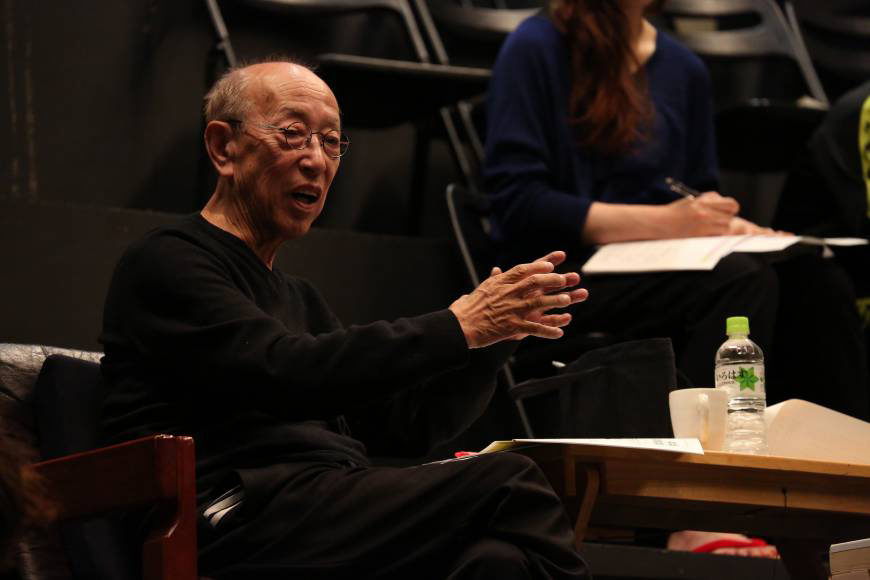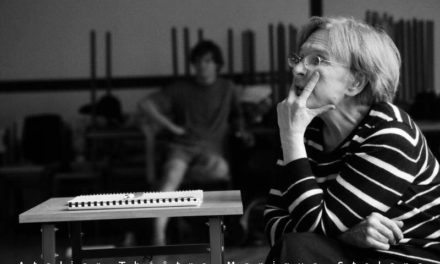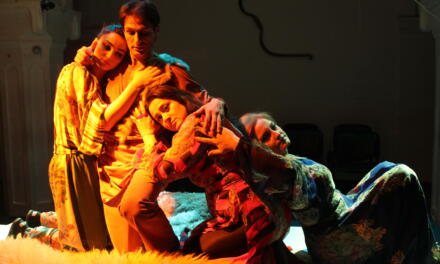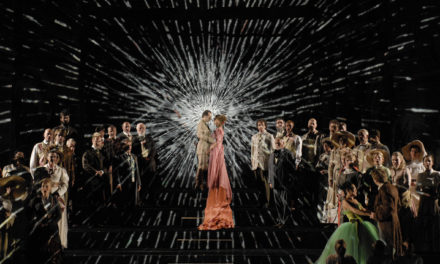Acclaimed stage director Yukio Ninagawa was a titan of global theater but his hand felt astonishingly fragile when I shook it in delight in 2012 after the world premiere of Trojan Women, which brought together a remarkable ensemble of Japanese, Arab-Israeli and Jewish-Israeli actors.
Ninagawa, who died Thursday of complications from pneumonia, was renowned for his theater passion, and the same fragile hand I shook four years ago once hurled an ashtray at an actor who didn’t appear to comprehend what was expected.
However, the late 80-year-old director also used this devotion to create magic on stage, turning a simple performance space into another world.
Ninagawa was especially adept at being able to explain his towering ideas to the cast and crew, something that was immediately obvious to anyone who sat in on one of his rehearsals.
Hideki Noda, an acclaimed theater director who was long Ninagawa’s spiritual heir, worthy rival, and soul mate, believes this was key to his mentor’s success.
“Every time he opened his mouth, his cast and crew were immediately able to understand his interpretation,” Noda said Thursday evening at Tokyo Metropolitan Theatre in Ikebukuro where he is the artistic director— the same theater in which the premiere of Trojan Women was performed.
Noda had visited Ninagawa in hospital on Wednesday evening, discovering that “his hero” had three plays he intended to direct sitting beside his bed.
“Nobody could match his energy,” Noda said, thanking Ninagawa for taking Japanese theater to the world stage in the early 1980s.
Ninagawa debuted as a director in 1969, becoming a leading figure in Japan’s underground theater movement before first taking his talent overseas with the dazzling kimono-style Greek tragedy Medea, which he staged in Italy and Greece in 1983.
Two years later, he gained international fame with a samurai-style production titled Ninagawa Macbeth that he staged in Scotland and the Netherlands. “Ninagawa was extremely brave back then to take that highly original, grand-scale production to Britain — the mecca of the theater world,” Noda said.
Following the success of that “cherry-blossom” production in Edinburgh, Ninagawa produced plays overseas almost every year, mostly focusing of the works of William Shakespeare but also adapting Hisashi Inoue’s Zen comedy, Musashi.
In May 2015, he took his version of author Haruki Murakami’s Kafka on the Shore for a run at the Barbican Theatre in London, which he had adopted as his base in Britain.
Speaking by phone on Thursday evening, leading British producer Thelma Holt said Ninagawa’s importance to theater could not be understated.
“He was a great director and in his taste, he was very Catholic and all-embracing,” Holt said. “He liked new work and he liked classical work.
“He was an actor before he became a director and, in 1986, when I first saw his work, I knew — anybody would have known — that it was something you weren’t going to find many times.”
Holt said Ninagawa “transcended language — there was no language barrier at all.”
“He had an unbelievable visual ability and he surrounded himself with very clever people,” she said.
“He knew what he wanted with the lighting, for instance, and though he couldn’t do that himself, he found the best people in Japan to do it for him.”
Speaking personally, Holt said, “Our relationship was terribly special.”
“(Ninagawa’s death) will be a very big gap in my life, which I won’t try to fill,” she said.
“When you have something as wonderful as that, you don’t try and replace it — you’d be moving into the second division.”
While Ninagawa’s death represents a tremendous loss for theater worldwide, Holt said it is important to pass his legacy on to the next generation, something the director put considerable energy into over his career.
Noda agreed, pinpointing Ninagawa’s special ability to discover and nurture young actors.
In recent times, the director put his heart and soul into his own domestic theater companies: Next Theater, a youth troupe whose members he selected through open auditions, and Gold Theater, a troupe of mostly silver-haired amateurs aged 65 to 90 he selected the same way.
In fact, a mixed team from both troupes returned from a Romanian tour last month, where by all accounts they put on a superb performance of Shakespeare’s Richard II — a play whose core theme grapples with the universal difficulty that younger generations face when making the transition from old values to new ones.
Ninagawa has left an incredible catalog of theater productions behind, covering works by Shakespeare, Inoue, Anton Chekhov, and Kunio Shimizu on topics such as love, war, friendship and much besides.
“(Ninagawa’s works) were always in his own original and unique style,” Noda said.
“(Although he) occasionally swung and missed in a thrilling way, his home-run stages were definitely in the top drawer.”
For this writer, though, now Ninagawa’s final curtain has fallen and I sadly can’t shake his hand again, I just wish that lovely, lively and life-loving artist: R.I.P.
This post originally appeared on The Japan Times on May 13, 2016, and has been reposted with permission.
This post was written by the author in their personal capacity.The opinions expressed in this article are the author’s own and do not reflect the view of The Theatre Times, their staff or collaborators.
This post was written by Nobuko Tanaka.
The views expressed here belong to the author and do not necessarily reflect our views and opinions.


















